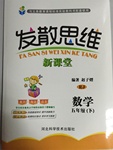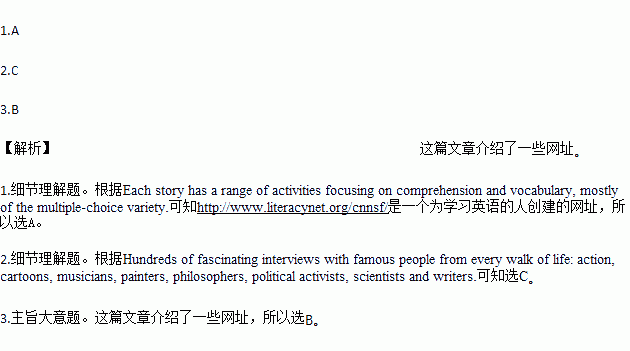题目内容
● http://www.literacynet.org/cnnsf/
Fantastic site from CNN. Over 50 news stories categorized under headings such as crime, environment and adventure. Each story has a range of activities focusing on comprehension and vocabulary, mostly of the multiple-choice variety.
● http://www.npr.org/
NPR is an American radio network with an extensive audio archive---an excellent source of authentic English.
● http://www.humorlinks.com/
Hilarious site bringing together over 7,000 links to humor of every kind, from American comedy to Australian cartoons. Here you will see the funniest jokes and pictures from all over the world.
● http://www.bbc.co.uk/bbcfour/audiointerviews/
Hundreds of fascinating interviews with famous people from every walk of life: action, cartoons, musicians, painters, philosophers, political activists, scientists and writers.
● http://www.bbc.co.uk./music.listen
Lots of online music from classical to jazz, from blues to rap. You can listen to radio programs or select a range of special features.
● http://www.onestopenglish.com
Here you will find listening activities--updated each month--from the online magazine from Macmillan.
1.http://www.literacynet.org/cnnsf/ is a website intended for those who______.
A. are learning English
B. are writing news stories
C. are interested in environment protection
D. are designing activities for newspapers
2.For someone who is doing a project on this year’s Nobel Prize winner, ______will be the most suitable websites to turn to.
A. http://www.onestopenglish.com
B. http://www.humorlinks.com/
C. http://www.bbc.co.uk/bbcfour/audiointerviews/
D. http://www.bbc.co.uk./music.listen
3.Which of the following might be the best title of the passage?
A. Web’s Radio: New Access to Information
B. Guide to Suitable Websites
C. How to Surf the Internet Wisely
D. Recommendation of Online English Magazines & Videos
 发散思维新课堂系列答案
发散思维新课堂系列答案



